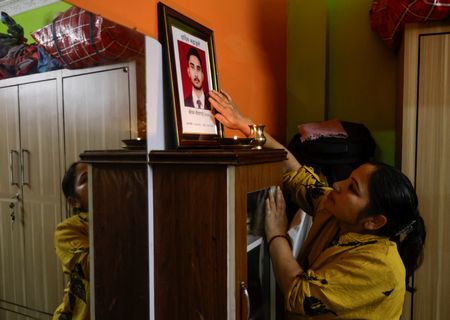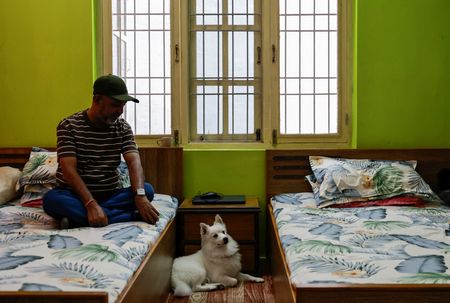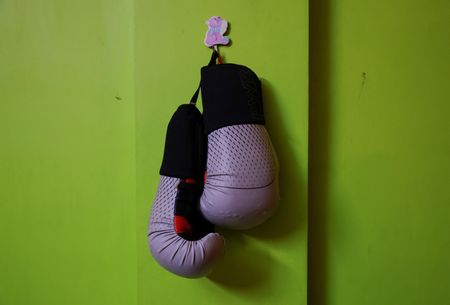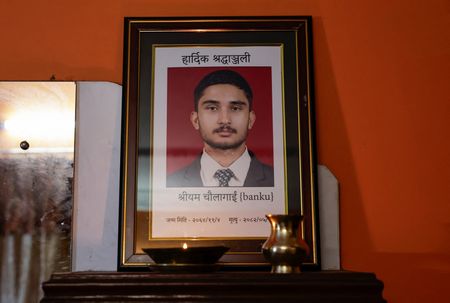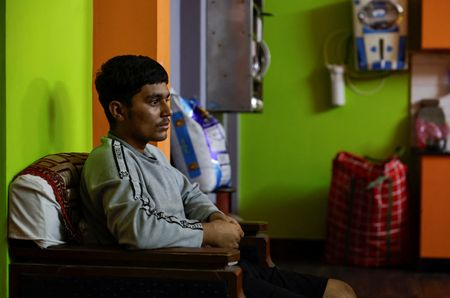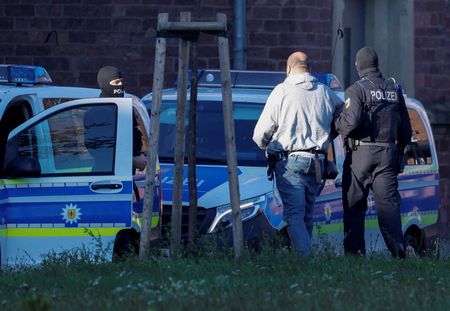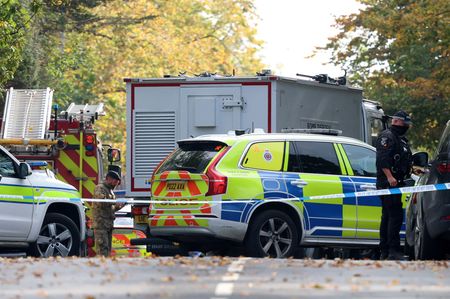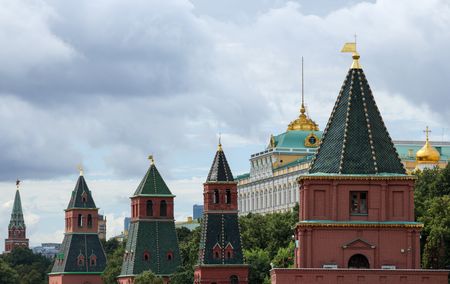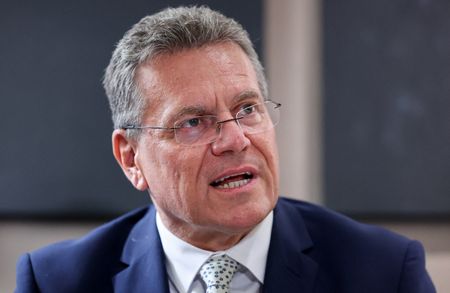KATHMANDU (Reuters) -Amid the lights, kite-flying and gatherings to celebrate Nepal’s 15-day festival of Dashain this year, the homes of families such as the Chaulagains are shrouded in grief for their son, killed in the country’s worst civil unrest in recent memory.
“Dashain is supposed to be filled with happiness, but this year I only feel sadness,” said 53-year-old Ganesh Prasad Chaulagain, who lost his son, Shreeyam, 18, in the political turmoil that convulsed the Himalayan nation last month.
He was speaking in the echoing silence of the family’s home in Kathmandu, the capital, as music and the scent of festival feasts filled the surrounding streets.
The high school student was shot in the head on September 8 near parliament after he joined in a peaceful anti-graft protest that spiralled into a two-day episode of violence.
Nepal is slowly emerging from violence triggered by its so-called Gen-Z protests by young people enraged at a lack of jobs and perceived political indifference that killed 74 and ushered in a new interim government.
Reuters has reported that at least 33 of the demonstrators killed in the anti-graft protests were hit by “live bullets” fired from “high-velocity firearms”.
Like many in mountainous Nepal, the Chaulagains lived on a slender monthly household income, in their case less than $200.
But they ensured Shreeyam received an education, setting their sights on his finding a job overseas, perhaps in a country such as Germany, to ease their financial burden in coming years.
The median age in Nepal is about 25 years, but a lack of jobs has forced nearly a third of its young people to leave home in search of a livelihood that ensures economic security.
Matters have not been made easier by Nepal’s unstable politics, with 14 changes of government in less than two decades.
After the protests, 73-year-old former chief justice Sushila Karki was appointed as interim prime minister to prepare for elections set for March 5, but experts say the task is challenging.
Now the Chaulagains, and the relatives of others killed in the protests, are demanding regular economic support from the government, rather than just a one-time compensation payment.
“Ritually, we can’t celebrate this year, but even in the coming years, Dashain will never be the same for us,” said the father of the dead Shreeyam.
(Reporting by Sahana Bajracharya in KATHMANDU; Editing by Clarence Fernandez)

